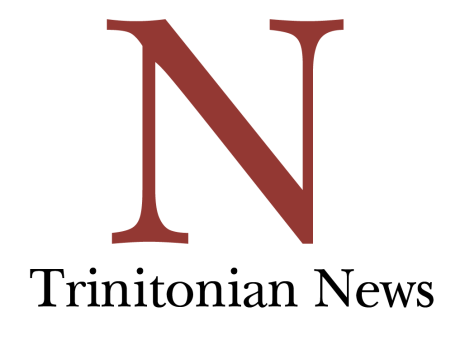Trinity’s School of Business sponsored the third-annual ethics symposium this past Monday. Cynthia Cooper, WorldCom whistleblower and one of Time magazine’s Persons of the Year in 2002, was the featured speaker at this year’s symposium.
In 2002 Cooper was the former vice president of internal audit at WorldCom, and her team of auditors investigated and found $3.8 billion in fraud at WorldCom. At the time, this was the largest incident of accounting fraud in United States history.
“Keep in mind that the people who are complicit with this fraud “” they’re not just numbers to us. These are people whom we’ve known for years. I’ve worked with these people for over eight years. I knew their spouses and children. There was nothing to celebrate,” Cooper said.
Kevin Bergner, former brigadier general and current president and CEO of Goodwill Industries, welcomed Cooper onto the stage.
“I’m absolutely honored to introduce someone whose personal courage and professional ethic really provide a tangible example that we should all know about and make a deliberate part of our lives. That’s a pretty strong statement, and I don’t arrive at it lightly,” Bergner said.
Cooper spoke to an overflowing audience in Stieren Theater, which was standing room only.
“People don’t wake up and say “˜Hey, I want to be a criminal today.’ It’s a slippery slope that people go down one step at a time,” Cooper said.
Cooper asked the audience to put themselves in the perspective of the mid-level managers in the WorldCom accounting department: Betty Vinson, who entered fraudulent figures into the system, and Troy Normand, who supervised the closing of the books at the end of the quarter.
“Why do you think people cheat or commit white collar crime? Sometimes you can walk through an ethical dilemma and not know that it’s wrong … some of these executives at WorldCom didn’t want to see the company fail on their watch and fear of losing [their jobs],” Cooper said.
Dzung Vu, a junior accounting major, has attended the Ethics Symposiums since her first year at Trinity.
“WorldCom is a case I’ve only heard of but didn’t fully understand. Listening to an insider like Cynthia Cooper made me realize so much more than what was taught in my Principles of Marketing class. It also is teaching by example,” Vu said. “I enjoyed getting the chance to see the private emotional side to the story; [its] helped so much more in enforcing my ethical practice in school and later in life.”
Bergner argued that Cooper made a difficult ethical choice.
“We frequently talk about doing the right thing because it’s the right thing to do. It’s kind of a cliché. We don’t talk enough about doing the right thing when it’s really hard to do: when the culture is against you, when the leadership is against you and when the people around you would rather look the other way,” Bergner said.
Despite being recognized in Time magazine, Cooper says that she never felt like a hero. Instead, Cooper said that the press and ongoing congressional investigation created anxiety and depression. Cooper realized that her life after discovering the fraud would never be the same.
“I realized that I had a choice to make. I could let this ruin my life or I could find a different direction,” Cooper said.
Cooper started her own consulting firm after WorldCom’s declaration of bankruptcy.
“What really helped me move through this was my faith, my family and husband,” Cooper said. “I was blessed to have some team members stand by my side.”







